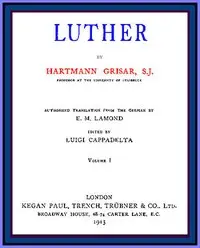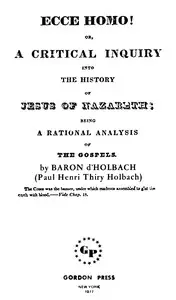"Plotinos: Complete Works, v. 3" by Plotinus is a journey through the complex landscape of ancient philosophical thought, exploring the core principles of Platonism and Neoplatonism. Rather than telling a story, this volume grapples with profound ideas such as the singular nature of unity, the complexities of manifoldness, and the fundamental character of numbers. It questions the implications of moving away from unity, investigating whether complexity leads to undesirable outcomes. The writing suggests that true value comes from staying focused on what's essential rather than spreading into broad and intricate systems. It considers the significance these concepts have on infinity and on how we understand numbers, proposing that numbers have a real and ideal existence beyond just being simple labels for things we see in the world. The volume is the start of a wider conversation about essence, smartness, and how the universe came to be.

Plotinos: Complete Works, v. 3 In Chronological Order, Grouped in Four Periods
By Plotinus
Embark on a journey through complex philosophical ideas exploring unity, existence, and the underpinnings of reality itself.
Summary
About the AuthorPlotinus was a Greek Platonist philosopher, born and raised in Roman Egypt. Plotinus is regarded by modern scholarship as the founder of Neoplatonism. His teacher was the self-taught philosopher Ammonius Saccas, who belonged to the Platonic tradition. Historians of the 19th century invented the term "neoplatonism" and applied it to refer to Plotinus and his philosophy, which was vastly influential during late antiquity, the Middle Ages, and the Renaissance. Much of the biographical information about Plotinus comes from Porphyry's preface to his edition of Plotinus' most notable literary work, The Enneads. In his metaphysical writings, Plotinus described three fundamental principles: the One, the Intellect, and the Soul. His works have inspired centuries of pagan, Jewish, Christian, Gnostic, and early Islamic metaphysicians and mystics, including developing precepts that influence mainstream theological concepts within religions, such as his work on duality of the One in two metaphysical states.
Plotinus was a Greek Platonist philosopher, born and raised in Roman Egypt. Plotinus is regarded by modern scholarship as the founder of Neoplatonism. His teacher was the self-taught philosopher Ammonius Saccas, who belonged to the Platonic tradition. Historians of the 19th century invented the term "neoplatonism" and applied it to refer to Plotinus and his philosophy, which was vastly influential during late antiquity, the Middle Ages, and the Renaissance. Much of the biographical information about Plotinus comes from Porphyry's preface to his edition of Plotinus' most notable literary work, The Enneads. In his metaphysical writings, Plotinus described three fundamental principles: the One, the Intellect, and the Soul. His works have inspired centuries of pagan, Jewish, Christian, Gnostic, and early Islamic metaphysicians and mystics, including developing precepts that influence mainstream theological concepts within religions, such as his work on duality of the One in two metaphysical states.














